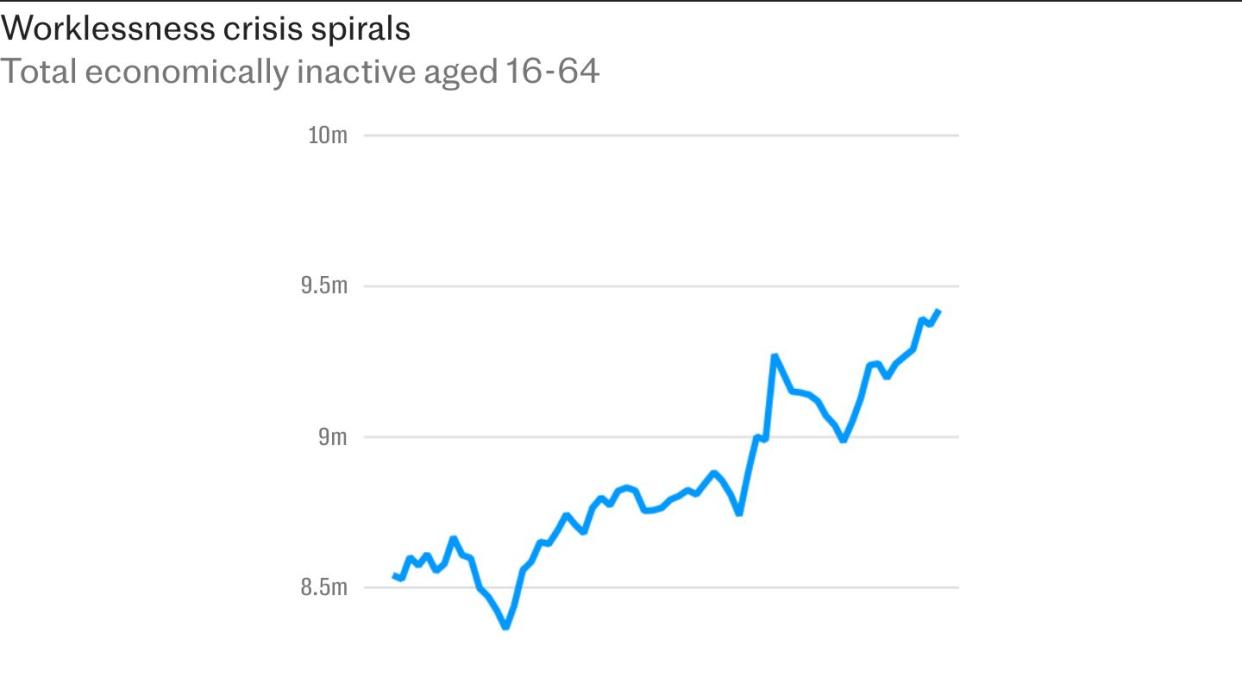Angela Rayner is creating an economic monster that will take decades to slay

Here we go again: back to the future, with Labour’s programme for regulating employment. For all the “consultation” with business on such far-reaching interventions, the notion that workers can choose a four-day week reveals a casual misunderstanding of business and management.
Suppose most of its workers opt to take Friday off – how will a business manage to produce on a Friday? Presumably it will have to pay overtime for Friday working; so in effect that mandates a rise in labour costs.
The Government suggests it will raise productivity; but if so, it would have been arranged anyway – who looks a gift horse in the mouth? It has also been suggested that workers could “compress” their hours. This would be extremely difficult for many businesses to achieve in reality.
Essentially, allowing workers and firms to negotiate freely gives both sides the best deal. That is why since the 1970s when unions had the power to enforce any terms they wanted, the freeing of the labour market from union power and a raft of associated regulation demanded by unions has given us full employment and rising living standards with rising real wages based on rising productivity.
The rise in productivity has slowed since the 2008 financial crisis, here and elsewhere, and that has brought our growth rate down. The main task of the Government therefore ought to be to raise that growth rate – as it keeps on saying it will – but we have yet to see what policies it plans to implement to achieve this.
What we know is that this whole programme of new workers’ rights will set back growth at once by hitting employment.
Memories are short when it comes to the economy, it seems. Faced with high unemployment after conquering inflation in 1982, the Thatcher government introduced fundamental reform of union laws and of unemployment and in-work benefits.
Unemployment came down from 3m, about 13pc, to the low rates of today, reaching 5pc in 2003. Currently it stands at just over 4pc. Notice how long it took to cure the labour market disease of the 1970s. Labour is now planning to reintroduce that disease, with potentially catastrophic effects.
Curing it again would take decades – basically because it is so integrated into the social fabric. How much will the four-day week proposal alone cost in employment?
According to the models we used to gauge the effect of the freeing of labour markets in the 1980s, we think a 2pc rise in labour tax costs about 1pc in reduced employment and output by raising labour costs. So, assuming the “compressed” hours don’t work, and if overtime is double time, then Fridays off could raise average weekly wage costs by about 20pc; that would give a hit to employment of about 10pc.
When the economy has just recovered from the Covid crisis and an extra 0.8m of the labour force (nearly 2pc) has withdrawn since pre-Covid due to illness and early retirement, this is a further blow that we really should be avoiding.

It is astonishing that our new Labour Government, which has sold itself as pro-growth and pro-business, should be playing with economic fire in this way.
Unfortunately, the thinking on the Left that inspires the Labour programme of intervention is suffused with wishfulness about its effects, amid the laudable desire to improve working people’s lives. In this it fits in with the rest of the Left’s agenda – to redistribute income and provide public services and pay for this via taxes on “the rich”.
Rachel Reeves has claimed that she understands the economy, having served in the Bank of England. She has paraded her adherence to fiscal rule as proof that Labour is a new animal, friendly to business and fully behind it in promoting growth in a free market economy.
The trouble, however, has already started. The latest interventions in the labour market are of a piece with the likely surge in taxes on the supposed rich – i.e. the entrepreneurial classes – in her upcoming October Budget.
We have already seen the re-emerging power of unions over this government in the settling of public sector disputes with massive wage giveaways. It took that massive reform effort here to reverse the British Disease of the 1970s, when we were famously “the sick man of Europe”.
After those reforms British living standards caught up with and then overtook those of France and Germany. Unfortunately that improved performance has been dissipated by policy mistakes in the past two decades, revealing the failure of the Conservative governments we have had.
But Sir Keir Starmer, for all he berates the Conservatives for their errors and economic failure, is now bidding fair not just to repeat them but to double down on them.

The British electorate, in their fury at the Conservatives, have now created a monster of a Government that will prove infinitely more damaging to their economic wellbeing.
Only about a third voted for Labour. But we are all going to suffer from the economic consequences of the current Labour programme.
When this Government is finally ejected, the damage will prove very hard to reverse, as our history shows only too clearly from the difficulties the Thatcher governments had in bringing in the ultimately effective but very hard-won reforms of the 1980s.


